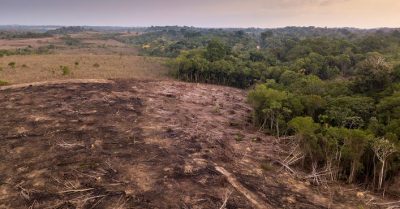Brazilian Crisis Might Hamper Dialogue with US About Amazon Problems

All Global Research articles can be read in 51 languages by activating the Translate Website button below the author’s name (desktop version)
To receive Global Research’s Daily Newsletter (selected articles), click here.
Follow us on Instagram and Twitter and subscribe to our Telegram Channel. Feel free to repost and share widely Global Research articles.
***
Some analysts have opined that Lula 3.0 will be a very different Lula, and we should expect a more pro-American and “Atlanticist” turn. They argue the green agenda focused on the Amazon would be the trigger for “reboosting” American-Brazilian bilateral relations – with Western aid becoming a kind of “quid pro quo” for a Brazilian support of Ukraine.
Too much was made of Lula’s recent “condemnation” of Russia’s military campaign in Ukraine. In fact, in the same statement, Lula quoted Pope Francis’ remarks about NATO “barking” at Russia’s door having provoked Moscow into acting. Moreover, the Brazilian leader has rejected sending tank ammunition to Germany over fears it would be transferred to Ukraine.
It is true that Brasilia and Washington seem to share a concern for the rainforest. In November 2022, US special envoy for climate, John Kerry, showed interest in working with Lula “to save the Amazon”. And right now, Lula’s government is actively pursuing partners to help finance a number of projects to save the rainforest.
Germany, for instance, has outlined more than $200 million in contributions for Brazilian environmental programs. The Amazon Fund, which had been frozen since 2019, was reactivated by Brazil’s Environment Minister Marina Silva. It is a billion-dollar initiative funded by Norway and Germany to fight deforestation.
During his visit to Brasilia on January 30, German Chancellor Olaf Scholz talked about the need to help “the lungs of the world”. Scholz was also interested in boosting cooperation with Latin American countries regarding renewable energies, and green hydrogen, as Europe goes through its own (largely self-inflicted) energy crisis.
Lula is visiting the US on February 10, to meet Biden. They will discuss climate change and food security among other issues. It remains yet to be seen what Washington, under Biden’s presidency, can offer, having a Republican Senate.
The US and European powers both weaponize the green agenda against emerging and developing nations. Though it is true that for decades the Brazilian state has been turning a blind eye to illegal deforestation and cattle ranching in the Amazon. This also involves powerful private interests, corruption and even some popular support, as those illegal operations have become a part of local economies.
The situation got even worse under Bolsonaro and he openly supported the aforementioned interests but this, ironically, backfired. The European Union, US and China have been increasingly demanding full traceability of cattle, wood and other items and through different legislations being proposed to obstruct and even ban Brazilian products associated with illegal deforestation and invasion of indigenous lands.
By finally putting the house in order and bringing law and order to the Amazon, Brasilia would “save face” before the international community. This would also empower the country to legitimate and reassert its sovereignty in a region which is so important for the globe. Western powers can help with aid, although often with a veiled agenda.
The Amazon issue does open a window of opportunity for Biden-Lula’s dialogue, but it remains to be seen how much actual cooperation Washington can really offer, beyond the rhetoric and the diplomatic nods, as Biden himself faces a divided country. In any case, Biden will increasingly “court” Lula now, especially after Beijing has done the same, and there are talks about Brazil joining the Chinese Belt and Road Initiative. China remains Brazil’s main trade partner, followed by the US.
For South American emerging powers, maintaining a good relationship with their northern neighbor is strategic. Even in the early 2000’s, a more left-wing Lula managed to maintain a good relationship with then US President George W. Bush, Cuba’s Fidel Castro and Venezuela’s Hugo Chavez – at the same time.
Lula now faces a political crisis, in a polarized country, with the specter of domestic terrorism and a new “military question”. The military particularly, due to nationalist ideology, are very suspicious of any international cooperation on the Amazon resulting in a loss of sovereignty. Lula, in turn, does not trust the military over suspicions and an increasingly large body of evidence that point to some military cooperation with the recent Bolsonaro supporters’ attempt at a coup.
No one knows if Lula will achieve “zero deforestation”, but there certainly is much he can do to try and improve the situation. So far concrete international help in that regard came from Europeans, not the US. And it would be too soon to talk about a Lula-Biden alliance of any kind over the rainforest.
*
Note to readers: Please click the share buttons above. Follow us on Instagram and Twitter and subscribe to our Telegram Channel. Feel free to repost and share widely Global Research articles.
Uriel Araujo is a researcher with a focus on international and ethnic conflicts.
Featured image is from InfoBrics

